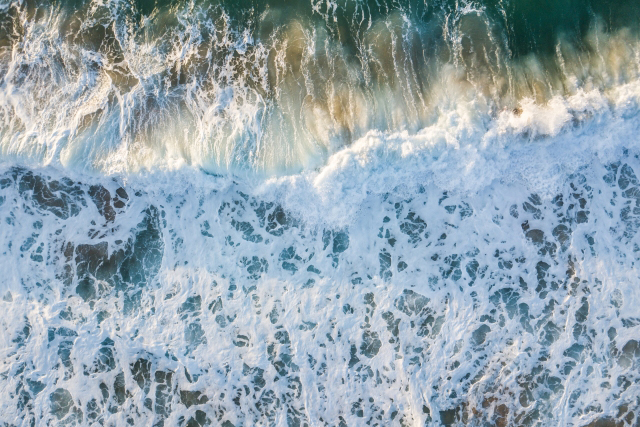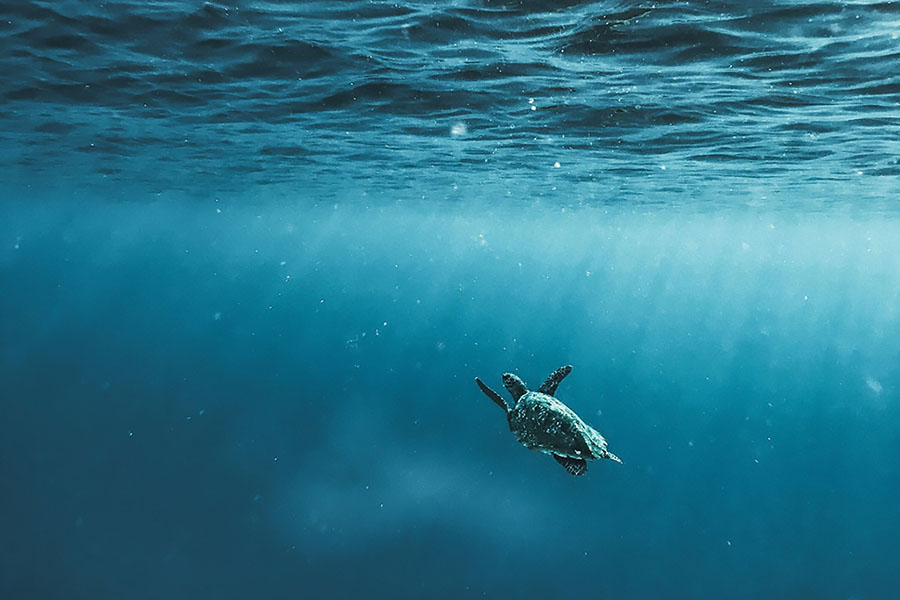Since 2009, almost 14 per cent of the world’s corals have disappeared, according to a recent report from the UNEP. The Sea Women initiative works to promote restoration of coral reefs.
Oceans and Marine Life
UNEP brings us the murky truth about plastic in the ocean: Every minute, one garbage truck of plastic is dumped into our ocean. Join 113,637 other people and take the Clean Sean Pledge.
Oceans present a huge opportunity for (Blue) economic growth and employment for the region, if properly tapped into (maximizing benefits), and if properly managed (minimizing the challenges). For the United Nations Decade of Ocean Science for Sustainable Development, UNESCO identifies an opportunity to optimally utilize Ocean’s substantial blue economy potential as a new frontier for development.
The United Nations has proclaimed 2022 as the International Year of Artisanal Fisheries and Aquaculture (IYAFA 2022), with the FAO serving as the lead agency. IYAFA 2022 will be an opportunity to celebrate the diversity of small-scale artisanal fisheries and aquaculture, including women and youth; to share the current and potential contributions to achieving the Sustainable Development Goals and highlight related innovation; and to build and strengthen related support and partnerships at all levels.
Coral reefs occur in more than 100 countries and territories. They support at least a quarter of marine species and underpin the safety, coastal protection, wellbeing, food and economic security of hundreds of millions of people. However, coral reefs are among the most vulnerable ecosystems on the planet due to global threats from climate change and ocean acidification, and local impacts from land-based pollution, marine pollution, overfishing and destructive fishing practices. A new report examines the status of the world's coral reefs over the last 40 years.
Ocean Decade Challenge 1: Understand and beat marine pollution
The Ocean Decade Challenges represent the highest level of the Decade Action Framework. They articulate the most immediate priorities for the Decade. They aim to unite Decade partners in collective action, thus ensuring that the whole of the Decade is greater than the sum of its parts and shaping the overall contribution of the Decade to the 2030 Agenda. UNESCO brings us this video on challenge 1: Understand and map land and sea-based sources of pollutants and contaminants and their potential impacts on human health and ocean ecosystems and develop solutions to remove or mitigate them.
The Mediterranean is just one of the regions where FAO is supporting countries to sustainably manage and protect marine environments, while counteracting overfishing of coral, fish, and other species. Through the regional GFCM, FAO is working with Italy and other countries to improve control and surveillance of fishing while seeking to keep red coral harvesting at sustainable levels. The management measures are designed to ensure the sustainability of red coral fishing, the job viability of the fishers, artisans and others in the industry who depend on it.
As the largest ecosystem on the planet, the world’s ocean is a pillar of climate regulation and a powerful source of solutions to the changing climate. IAEA scientists use nuclear and nuclear derived techniques to understand the processes and mechanisms that control the oceans and propose strategies to protect people and the marine environment from the impacts of climate change, pollution, habitat destruction and biodiversity loss.
On this World Oceans day, Lewis Pugh took a dip with some Cape Fur Seals off the tip of Africa near Cape Town. During his swim, the UN Patron of the Oceans asks us to consider our impact on oceans and what we can do to make a positive difference to save our seas.
Covering some 70% of the Earth's surface, the ocean is a major driver of the world's weather and climate. Today, the growing impacts of climate change are making ocean observations, research, and services more critical than ever before. On World Meteorological Day, 23 March, we highlight the inextricable link between ocean, climate and weather. It is also the launch of the Decade of Ocean Science for Sustainable Development (2021-2030), to strengthen connections between communities working to study, conserve and sustainably use the ocean and its resources.
The first UNESCO scientific assessment of its World Heritage marine sites’ blue carbon ecosystems highlights the critical environmental value of these habitats in fighting climate change.
Oceans are an essential part of our planet. They provide us with food to eat and keep our atmosphere healthy. Without the oceans, we simply wouldn’t exist. But climate change means that ocean temperatures are increasing, icebergs are melting, and sea levels are rising. We need action to reverse these trends, and raising awareness is the first step. To do so, FAO hosted an online discussion titled Talking Oceans and Climate Change.
To better understand the mysteries of the world’s oceans, a team of scientists is using satellite imaging to map out, in unprecedented detail, one of the planet’s most iconic underwater ecosystems: the shallow coral reef.
The Ocean Decade will harness, stimulate and empower interdisciplinary ocean research at all levels, to support the timely delivery of the data, information and knowledge needed to achieve a well-functioning ocean in support of all SDGs of the 2030 Agenda.
The marine realm is the largest component of the Earth’s system that stabilizes the climate and supports life on Earth and human well-being. That’s why the UN proclaimed the Decade of Ocean Science for Sustainable Development (2021-2030) to support efforts to reverse the cycle of decline in ocean health.









